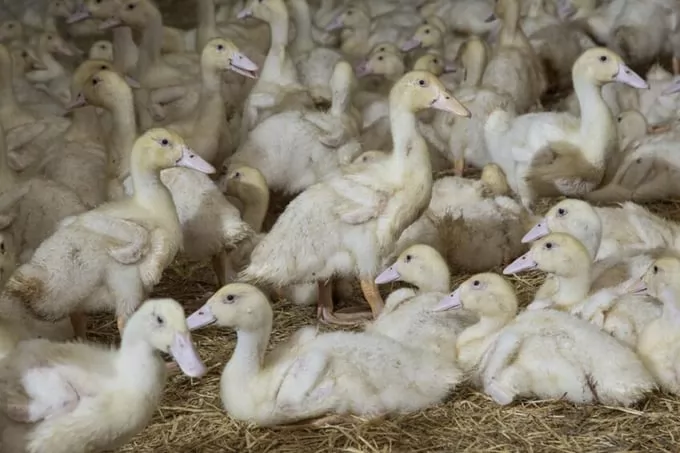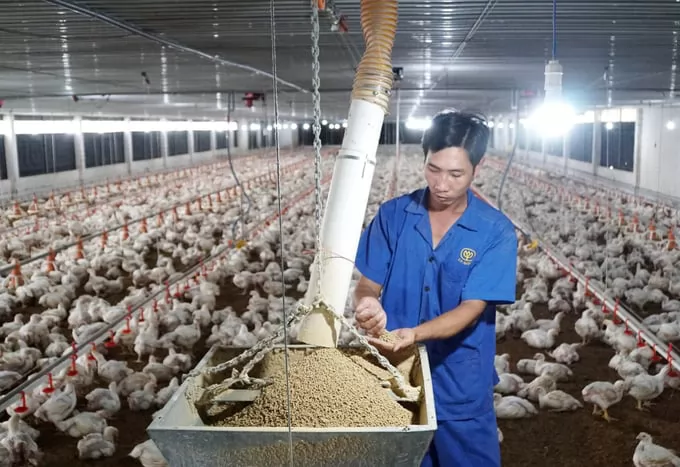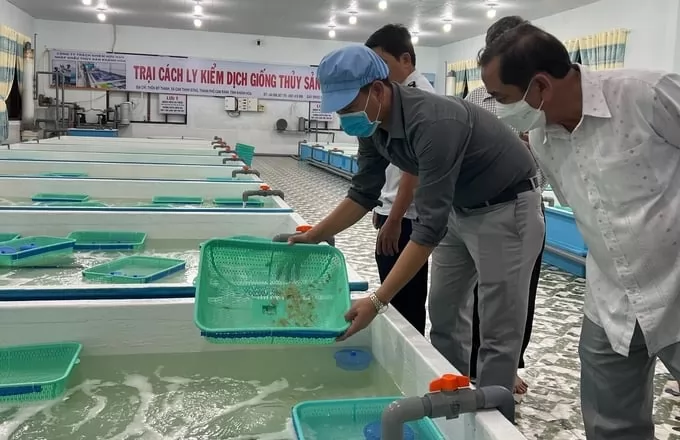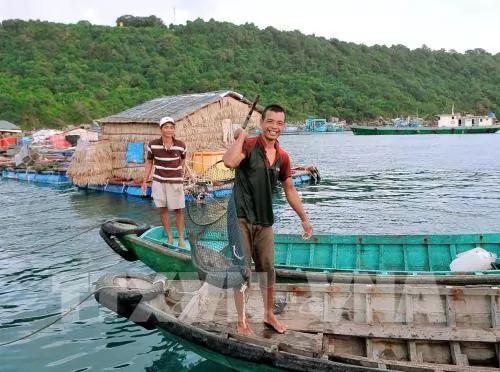French getting a grip on avian influenza

At the end of February, over 21.6 million ducks had been vaccinated, or one-third of the total of 64 million to be treated. Photo: Koos Groenewold.
(VAN) By mid-March, the French authorities had registered 10 cases of high pathogenic avian influenza since the first detection on 27 November 2023.
The department of agriculture in France has lifted the risk level for avian influenza from severe to modest and reports that the epidemic so far has been far less severe than in some previous years thanks to the massive poultry vaccination campaign.
By mid-March, the French authorities had registered 10 cases of high pathogenic avian influenza since the first detection on 27 November 2023. Just to compare, in the same period in 2022/23, the number of cases was 315 while in previous winters it often exceeded 3,000.
The improvement is mainly due to the successful vaccination of ducks, which in previous epidemics showed to be highly susceptible to avian influenza, as well as some other poultry. Up until the end of February, over 21.6 million ducks had been vaccinated, which is one-third of the total of 64 million to be treated. Every animal receives 2 vaccinations, the first at 10 days and a second 18 days later. The total costs of the campaign are estimated at €100 million of which the French state pays 85%.
“That we can lower the risk level is mainly thanks to the continuous cooperation of the organisations in the poultry sector, veterinaries and the State in the unprecedented vaccination campaign which offers a daily protection against the virus,” minister Marc Fesneau says.
“At an European level, the virus is actually less present in the routes of migrating birds over France, both in the north from the Baltic Sea to the Channel as in the south from Central Europa and Italy or Switzerland,” the department adds.
Some restrictions remain
In the specific migration zones, some restrictions remain for letting ducks go outside while in most of the country all restrictions for all poultry have been lifted. However, pre-movements test are still compulsory for the transport of poultry between professional holdings.
Belgium declared free of bird flu
Neighbouring Belgium is officially declared free of avian influenza by the World Organisation for Animal Health WOAH, the Federal Agency for the Safety of the Food chain FAVV has announced. Belgium had the last registered case of highly pathogenic avian influenza at December 29th in Diksmuide, near the border with France.
The number of cases has remained low, with no more than 8 cases at professional poultry farms in 2023. “This is a strong decrease compared to 2022; however, vigilance remains necessary,” the FAVV says.
Belgian minister of agriculture, David Clarinal: “Belgian is once again free of highly pathogenic bird flu in poultry. That success is the result of preventive work and measures by the poultry holders and the FAVV, helped by the preventive policy in our neighbour countries. In October 2023, France launched a large national vaccination campaign, the effects of which are undoubtedly visible here in Belgium. I am convinced these instruments are fundamental in the our strategies to prevent the resurgence of avian influenza in poultry holdings and the massive culling of animals with severe economic and social consequences.”
Bird flu situation in Germany
Germany, another country that borders France, also shows a massive decrease in the number of avian influenza cases. Between 1 and 31 December 2023, no more than 13 HPAIV H5 outbreaks were detected in domestic poultry in the country, the Federal Research Institute for animal health Friederich Loeffler Institute reports.
The number of cases in wild birds continued to rise in December. A total of 29 cases of HPAIV H5 in wild birds were reported to the Animal Disease Notification System. The H5N1 subtype was confirmed in all cases. More recently, between 1 and 29 February 2024, 6 HPAIV H5 outbreaks were detected in domestic poultry in Germany. The outbreaks affected laying hen farms (2), private chicken farms (2) and 2 turkey fattening flocks. HPAIV H5N1 was also detected in 2 ‘wild turkeys’ at Cologne Zoo on 12 February 2024.
HD
(PW)
Maybe you are interested

Science and technology help Vietnam's livestock industry accelerate
Mechanization and automation solutions have contributed to helping livestock products dominate the world market.

Proposal to pilot quality control of the imported lobster breed
Khanh Hoa proposes to allow localities to pilot testing of imported lobster breed samples registered for concentrated isolation in the area.

Marine aquaculture brings high profits to Kiên Giang farmers
KIÊN GIANG - Breeding marine fish in floating cages has offered high profits for farmers in Kiên Giang Province's coastal areas and islands.





